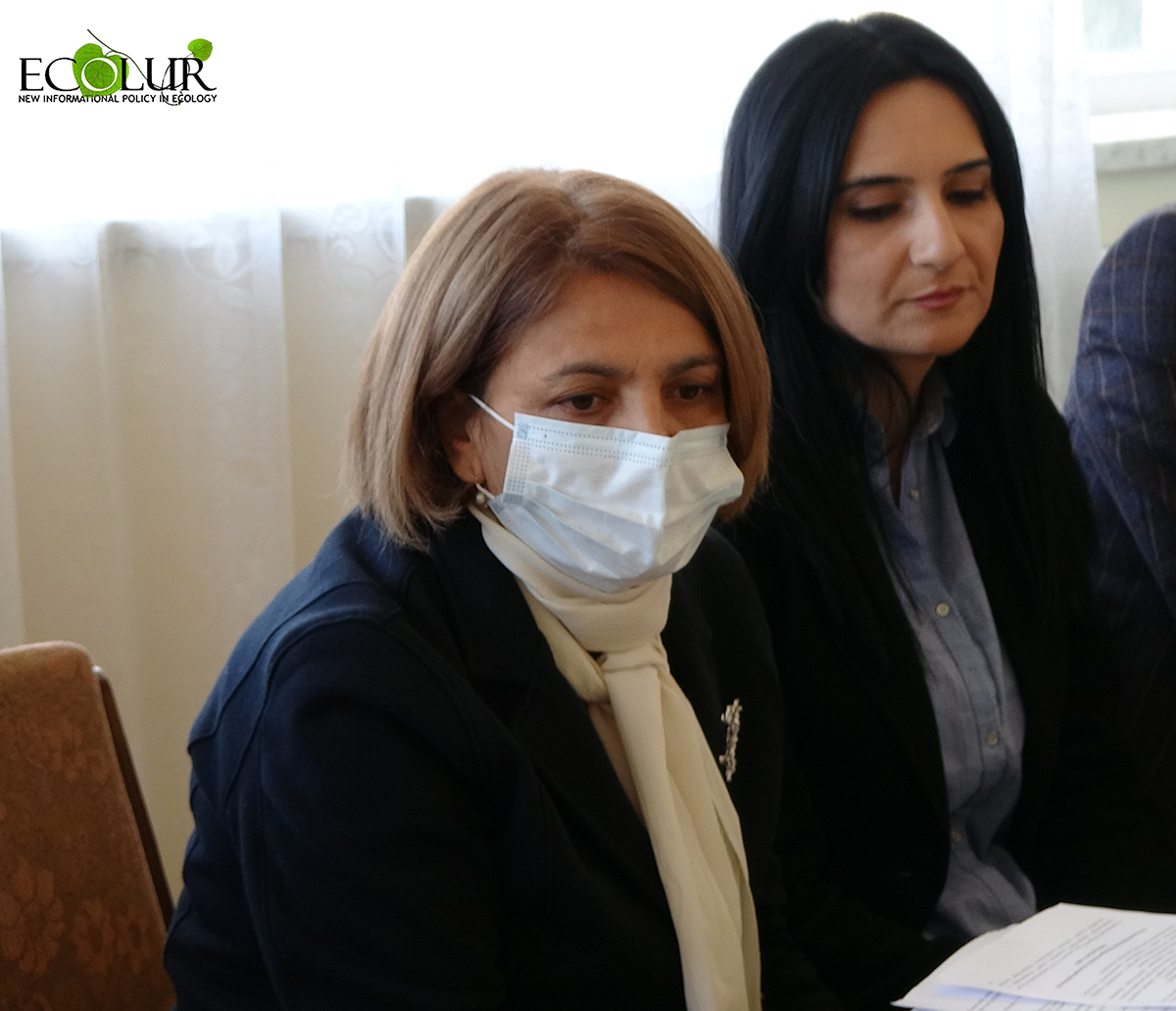

"Dizapayt" LLC plans to build a 5 MW solar photovoltaic station in Talin Community in Aragatsotn Region. On October 19, 2021, the 4th public discussion on the environmental impact assessment report of the planned solar station in Talin Community, presented by "Dizapayt" LLC, took place in Talin community hall in Aragatsotn Region.
The station will be located in the 8-hectare area owned by "Dizapayt" LLC, which was previously used as a pasture. The planned solar station will be connected to the high-voltage power line with a 110-kV transmission line up to 20 m long, without connection of the pillars.
During the hearings, Inga Zarafyan, President of "EcoLur" Informational NGO, raised the issues of further storage management and recycling after the expiration of the panels. These wastes contain compounds of cadmium, lead and copper. According to the report, the plant will have 11,700 monocrystalline panels.
The author of the evaluation report, the representative of "Noval" LLC Tamara Nurijanyan said, "The panels are reusable, they are planned to be repaired, and in case of expiration of the service period, they will be temporarily stored in a 640 cubic meter warehouse allocated for that purpose by the entrepreneur. It is the responsibility of the undertaking enterprise to process the wastes.”
In his turn, Vrezh Vardanyan, Chief Specialist of Environmental Impact Expert Assessment Center of Environment Ministry, added that it is necessary to make a legislative amendment to the EIA law by including in the expert assessment the requirement on the obligation of the entrepreneur to recycle waste at his or her own expense.
According to Tamara Nurijanyan, the government should develop a waste recycling strategy. "Until then, we have set certain obligations on the entrepreneur. Panels containing photocells should not be collected and disposed of in landfills, we should look for companies that produce solar panels, sell them to other waste collection companies, including foreign ones, which have expired wastewater recycling technologies," she said.
EcoLur sent an opinion on the project to build a solar power plant in Talin to "Environmental Impact Expert Assessment Center" SNCO, which states:
“1. Under the project, during possible accidents during the operation of the power plant or during the possible repair of the substation, halogens, defilins, terphenyl-free transformed oils in the amount of 15 t/year will be formed as well as oiled rags, asphalt-concrete residue residues, grease-stained metal.
In order to minimize or eliminate the effects of waste, it is planned to hand over the metal waste to the relevant licensed organizations for further processing and use.
Concrete debris, bags, etc. will be stored in special bags or containers in the area before being transported to the landfill, and will be placed on racks under cover.
Contaminated rags and bags generated during construction will be handed over to waste heat disposal companies or mixed with household waste in a 1/10 ratio, transported to a landfill, and the oil collected in the oil intake will be handed over to the appropriate processing companies.
EcoLur’s Obseervations:
To mention the data of the licensed companies that have a license to process transformer oils, as according to our information there are no such companies in Armenia. There is an organization carrying out such activity in Georgia, which has a used transformer oil collection point.
2. In case of expiration of the plant's service life, 11,700 photovoltaic panels containing lead, chromium, cadmium, silicon and other materials will be temporarily stored in a 640 cubic meter warehouse allocated for that purpose by the contractor. Panel utilization recycling is an urgent problem and poses risks of long-term soil contamination with solid photovoltaic waste, chemicals and compounds.
As a temporary solution to the problem, it is recommended to repair a few actions: reuse damaged parts, do not bury panels containing photo elements or open in landfills, sell to other waste collection organizations, including foreign developed countries, which have such expired wastewater treatment technologies, dispose of waste containing photocells to electrical or electronic equipment collection points or organizations (also foreign) for waste collection, and dispose of the waste to organizations in the country producing the solar panels from which the photoelectronic solar panels were procured.
Moreover, the draft says that "in the Republic of Armenia, as well as in the developed countries of the world, there are still no solutions for solar station equipment, in particular panels containing photo elements and other accompanying parts as waste."
EcoLur’s Observations
Panel waste management is considered to be the most vulnerable part of solar energy worldwide. “End-of-Life Management: Solar Photovoltaic Panels" study jointly published by International Renewable Energy Agency (IRENA) and International Energy Agency (IEA) in 2016 states that about 1.7-1.8 million tons of photovoltaic waste (cumulative) will be generated in the world by 2030, and the volume of expired solar panels (cumulative) will increase to about 60-78 million tons (see page 20) by 2050.
Given that the company must use green loans, the issue of this waste must be clarified. The applicant must submit a detailed action plan for the management of wastewater, specifying the amount of waste generated, its storage conditions, minimization of losses, expected financial costs and liability.




November 01, 2021 at 13:21
